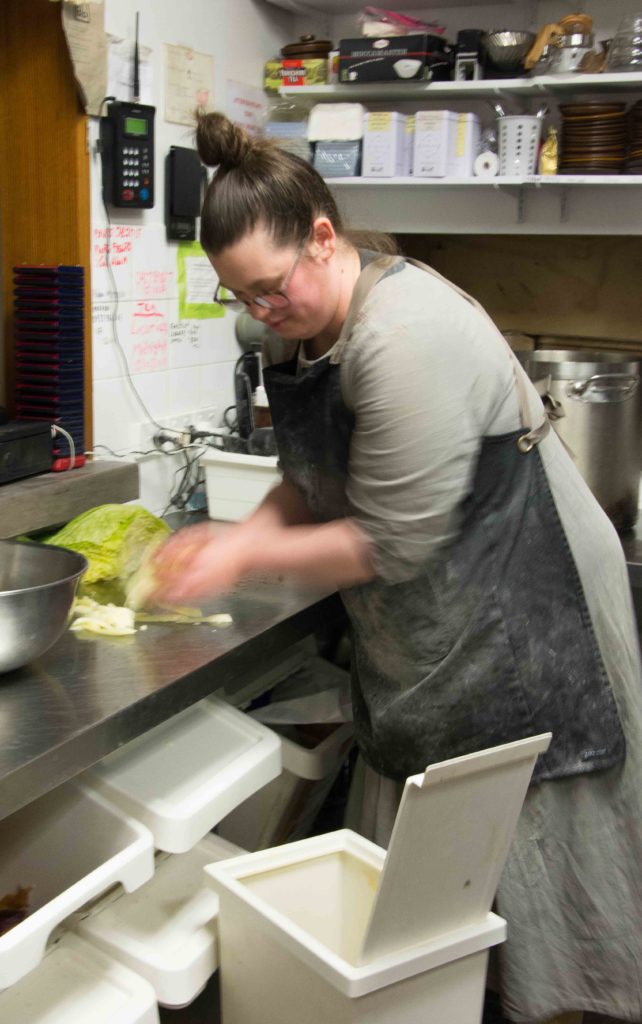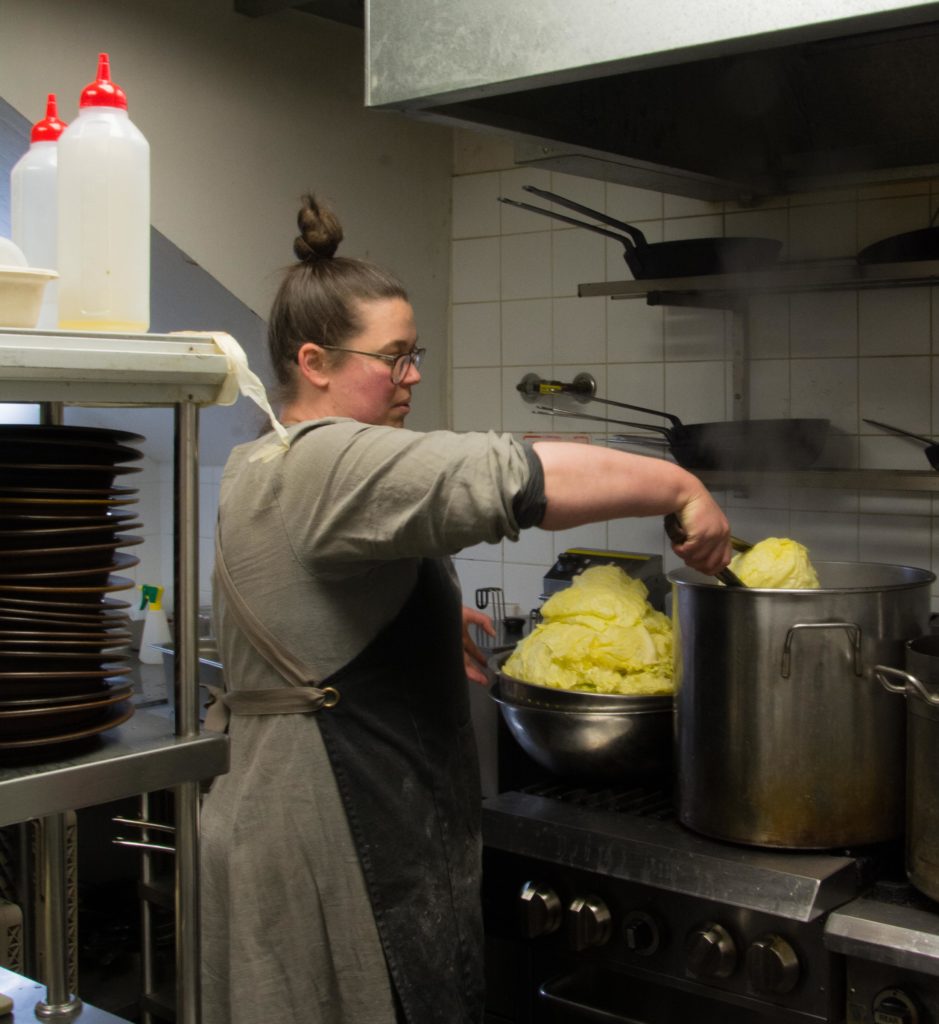
When people first hear about the HCC a common ‘helpful suggestion’ is that I should ask cafes and other places that generate large amounts of food waste, if I can take it off their hands. This is the traditional business model for organics recycling: where so-called waste (no $ value) is given for free and carted away at the processors cost and then transformed into something of slightly higher (monetary) value that the processor can then sell in attempts at making a profit. But that is not what the HCC is attempting to do. It’s true that I personally use some of the compost that is generated in my own garden but that is not why I spend so much of my time collecting and recycling these small amounts of food waste. Considering only the financial aspect it would be much cheaper for me to just buy compost. Obviously, there are other motivations at play. The HCC business model is the opposite of the traditional composting one: where instead we as a community recognise waste management and recycling as a worthwhile activity that should be properly managed, avoiding various environmental harms and at the same time maximising resource re-use (eg. the nutrients and useful carbon molecules in food waste). This management and optimal recycling of resources requires effort and therefore needs to be paid for somehow. The good news is that like a lot of sustainability measures it will pay for itself in the long run! In the meantime the HCC sits in this awkward space in between overly generous community venture and budding social enterprise.
So how does this explain why I don’t collect food waste from cafes? The answer is that Canberra is a progressive city and already had established organics recycling businesses to service higher volume food waste generators and/or those businesses (such as large/professional organisations eg. federal government departments) that could afford to pay for responsible waste management. Thinking about the logistics and the economics of the situation there just isn’t a compelling case for these existing businesses to run all over town to pick up small amounts of waste from select households though. This is where the HCC fits in, with a localised yet expandable decentralized network of composting hubs that can actually take care of this waste stream in a way that surpasses even carbon neutrality (drawing down carbon!). It’s about having the best possible environmental outcomes but also aiming for a whole of community approach, rather than tackling the larger amounts of waste first and then working downwards from there.
There are some quite ambitious aims in there, and in the meantime, plenty of small businesses have a desire to do better yet find it difficult to afford overhauling their waste management. Engaging one of the food waste collection services may seem too costly when profit margins are slim and other risks are high. But rest assured that as more people engage with the issues and opportunities that waste represents then the economics of the whole situation should improve. One small business in Canberra taking these issues seriously is the Polo restaurant in the Polish White Eagle Club in O’Connor. Along with a raft of other sustainability measures, absolutely all of the food waste that is generated in the restaurant is composted. When I found this out I was thrilled. I’ve been enjoying the pierogi and more at the Polo for years and I didn’t even realise I was supporting a sustainable business. I’m a big believer in conscious consumerism, that we should be spending our ‘hard earned’ wisely to build the future that we want to see.

Back when the HCC was starting out and I needed to secure a large volume of food waste to test the processes I did in fact ask a local café if they could put aside their scraps for me. The answer was disappointing; the kitchen manager said that ‘it would be too much hassle for his staff’. So it was great to hear pierogi chef extraordinaire, Mary from the Polo, nonchalantly declare that it’s no extra effort to remember which bin the food scraps go into in their kitchen. At first, all the food scraps were going home with restaurant owners Fiona and Adam to be composted in their backyard. This is no small effort from someone running a small business, parenting small children and very active in their local community! Fiona has now got word out and some of the kitchen scraps end up in other keen gardener’s compost heaps, a great demonstration of the sharing economy in action. Just as with the HCC it’s great to know that the ‘waste’ being generated is being utilised in such a local way. After all, those food scraps are still full of valuable nutrients that can be returned to local soils to enable us all to grow more right within our urban areas.

People are getting on board in terms of expecting more from products, services and companies, when it comes to transparency around labour conditions, fair trade practices and environmental credentials. This is the kind of attention that is sorely needed if we are going to attempt a just transition to a climate friendly future. I mentioned in the last blog post that I’m personally happy to pay a premium to gain some assurances towards these goals and I know I’m not alone. As a society we need to become more comfortable with asking questions of our suppliers. Things like: ‘where was the product sourced?’ ‘who made it?’ ‘what sort of packaging did it come in?’ and of course, ‘what are your waste management policies/behaviours?’. This kind of subtle activism could be seen as annoying or a burden, especially to already overburdened small businesses. On the other hand, we can celebrate the businesses that are showing just what can be achieved. Good food, great atmosphere and responsible waste management, what more could you want? Thanks Polo restaurant for showing me how you achieve all this!

If you have a favourite local restaurant near you perhaps ask them if they recycle their food waste. If the answer is no, make sure to let them know that you’d be willing to pay a small premium on your meal to make it happen 😊 Let’s make the idea mainstream, till it’s an assumption rather than an exception.


